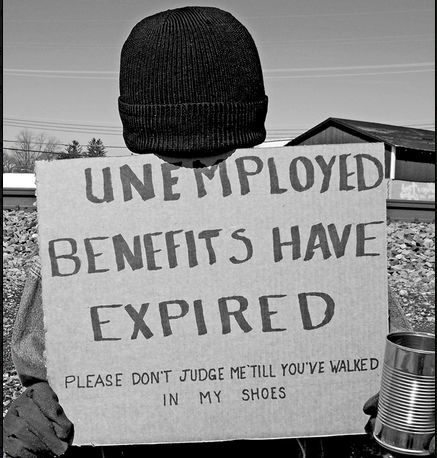

A People’s Bailout is only half the solution
Okay, let’s say for the sake of argument we get a People’s Bailout.
Everyone gets a financial reset.
Without more jobs and more living-wage jobs, we will be back in the same situation we’re in now.
With extended benefits ending at the end of June, we’re facing a perfect storm of unemployment:
- the people who are about to lose their benefits;
- the people who no longer receive unemployment and are considered discouraged workers;
- the people who are underemployed in terms of wages or weekly hours;
- and the latest group, high-school and college students who are looking for summer employment to pay for their education. Just take a look at the classifieds section in your local newspaper.
I won’t provide numbers because everyone has a way of parsing and disputing them. Let’s just say, a lot of people are looking for work.
Susan Maas shared on Facebook this New York Times article, Let’s Be Less Productive: that the relentless drive for productivity in the workplace has created deficits of care, craft, and empathy. Restructuring the work week to 21 hours could restore those qualities while putting people back to work. Author Tim Jackson concludes:
Of course, a transition to a low-productivity economy won’t happen by wishful thinking. It demands careful attention to incentive structures — lower taxes on labor and higher taxes on resource consumption and pollution, for example. It calls for more than just lip service to concepts of patient-centered care and student-centered learning. It requires the dismantling of perverse productivity targets and a serious investment in skills and training.
Every idea starts somewhere as a loony idea. Universal healthcare was once restricted to the lunatic fringe, and now it’s part of the national discussion. Perhaps a restructured work week isn’t far behind.
Thanks for your feedback. If we like what you have to say, it may appear in a future post of reader reactions.

